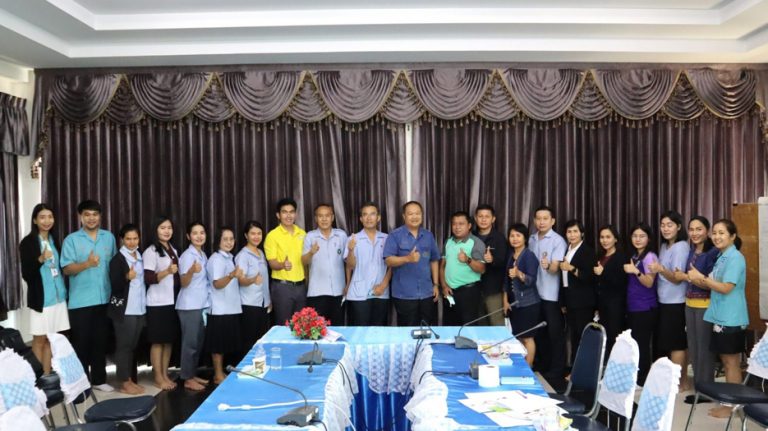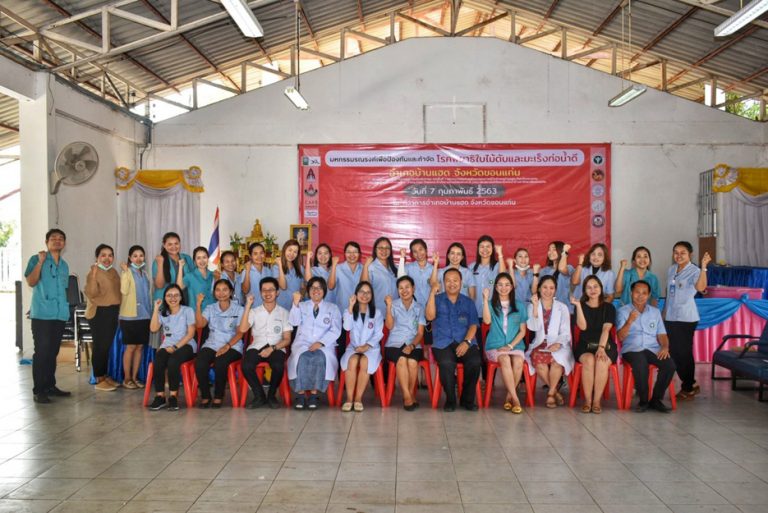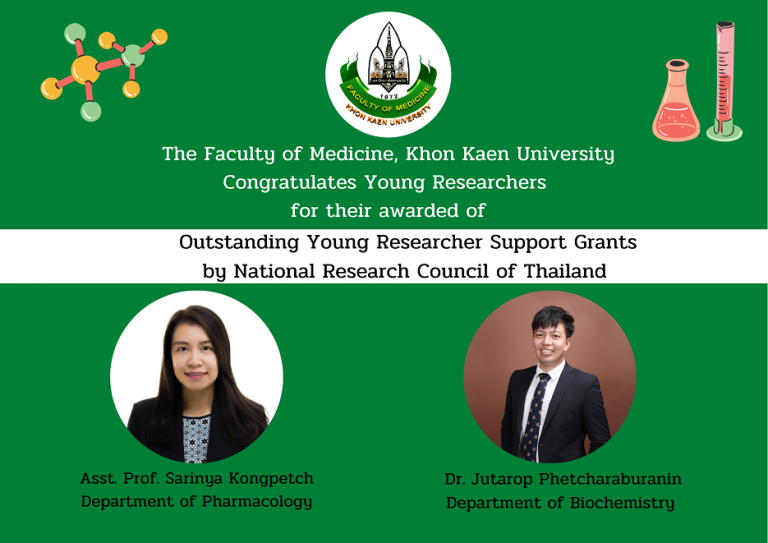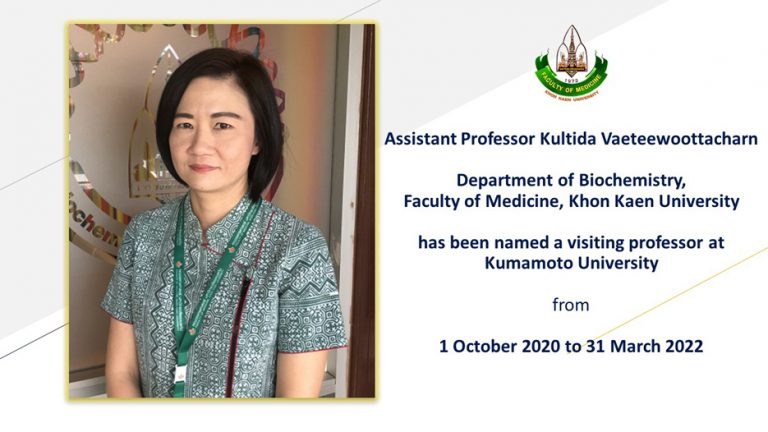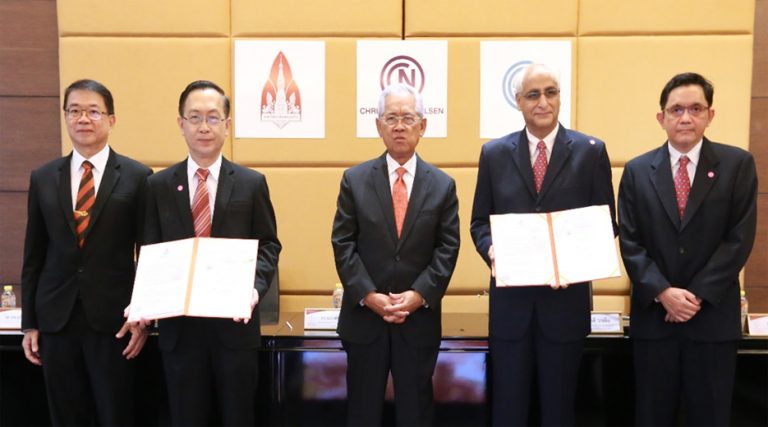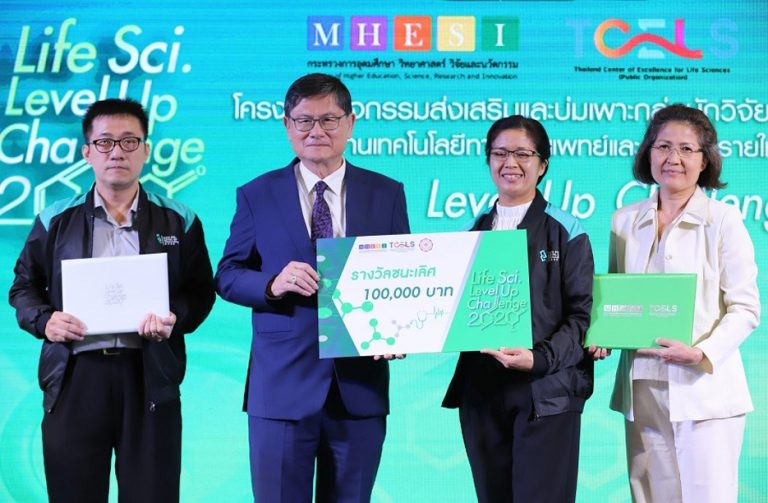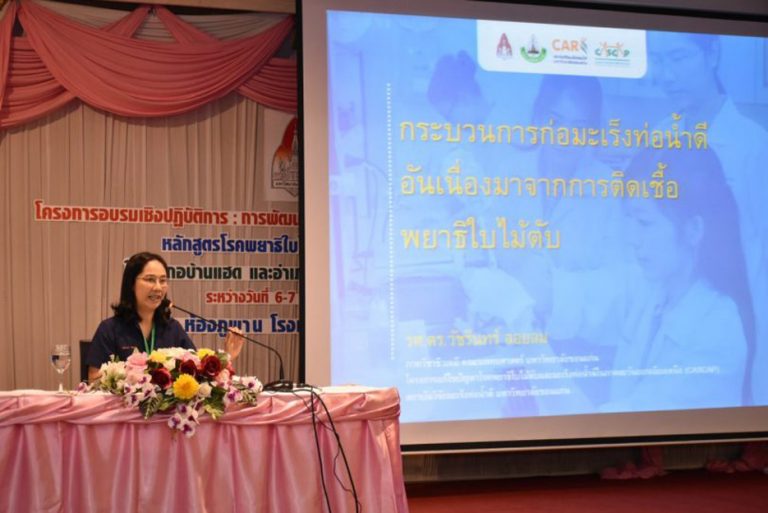March 4, 2021, at the Conference Room of Nongkungsri District Public Health Office – the Cholangiocarcinoma Research Institute, Khon Kaen University, led by Prof. Dr. Narong Khanteekaew, M.D., Director of the Institute and his team joined the meeting to determine the approaches for eradicating liver fluke and cholangiocarcinoma at Nongkungsri […]
Research and Innovation
Ban Had Model to achieve Fluke Free Thailand
The Faculty of Medicine, Khon Kaen University, National Research Council of Thailand and Khon Kaen Municipality Department of Public Health, have come together to promote the Fluke Free Thailand project. The Fluke Free Thailand Project originated in the Cholangiocarcinoma Research Center, the Faculty of Medicine, Khon […]
MDKKU Professors Receive National Research Council of Thailand Research Grants
Two Professors from the Faculty of Medicine, Khon Kaen University, had recently received support funds from the National Research Council of Thailand. Congratulations to Dr. Jutarop Phetcharaburanin, Department of Biochemistry, and Assistant Professor Sarinya Kongpetch, Department of Pharmacology, for their Outstanding Young Researcher Supporting Grants from the National Research […]
MDKKU Professor Named Visiting Professor at Kumamoto University
Assistant Professor Kulthida Vaeteewoottacharn, Department of Biochemistry, Faculty of Medicine, Khon Kaen University, has been named a visiting professor at Kumamoto University, one of the top universities in Japan. The designation of visiting professor has been approved by Professor Shinji Harada, President of Kumamoto University and is effective from 1 […]
The MDKKU has driven the strategy for Medical Hub of Southeast Asia
On September 15, 2020, the signing ceremony for the construction of Medical Hub between Khon Kaen University and Christiani & Nielsen (Thai) Public Company Limited was held. The delegates from each side include Associate Professor Charnchai Panthongviriyakul, President of Khon Kaen University and Mr. Khushroo Kali Wadia, Managing Director […]
MDKKU Lecturers took 1st place for Innovative start up business
On September 2, 2020, Professor Anek Laothamatas, Minister of Higher Education, Science, Research and Innovation, was present as chairman in the Demo Data and Awarding Ceremony of Life Sci. Level Up Challenge 2020 Project. The project was held by Minister of Higher Education, Science, Research and Innovation, Thailand Center of […]
CASCAP Joins Faculty of Education, KKU to train teacher on increasing immunity against liver fluke
August 6, 2020, at Phupan Room, Khon Kaen Hotel, Khon Kaen – Cholangiocarcinoma Research Institute of Khon Kaen University led by Assoc. Prof. Watcharin Loilom, Ph.D., a member and secretary of the institute joining Faculty of Education to carry out a project on teaching school students about liver fluke […]
KKU presents the 7 selected innovations at Thailand Research Expo 2020 – with Assoc. Prof. Charnchai Panthongviriyakul, M.D., KKU President giving a talk on “Solving COVID-19 crisis with medical innovations”
August 2-6, 2020, 10:00 a.m. at Centara Grand Hotel and Bangkok Convention Center, Bangkok – National Research Council of Thailand (NRCT), Ministry of Higher Education, Science and Innovation, joining research network all over the country held the 15th “Thailand Research Expo 2020” under the theme, “Research for national development […]


